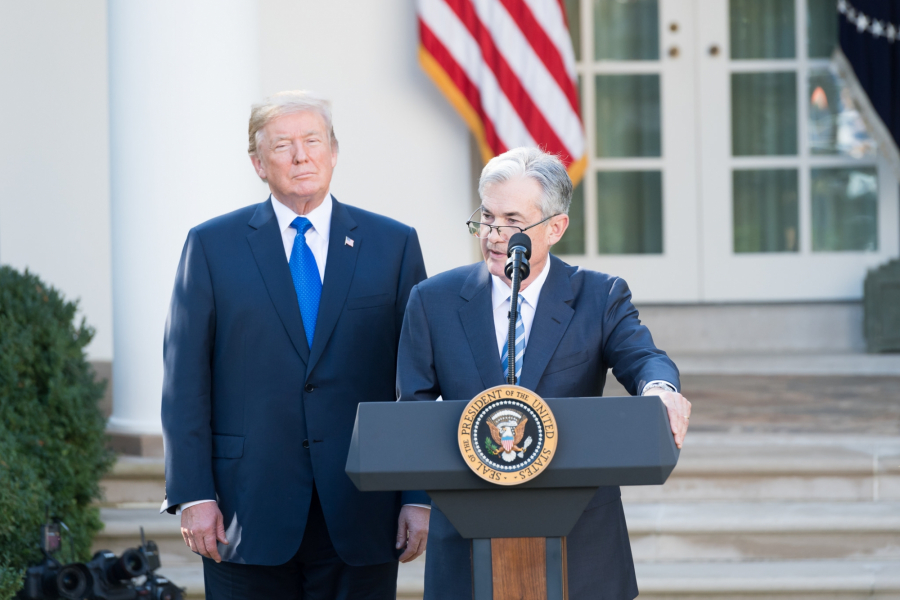Jerome Powell, a governor of the U.S. Federal Reserve, recently issued a warning statement regarding digital currencies issued by central banks to the general public, stating that "A digital currency issued by a central bank would be a global target for cyberattacks, cyber counterfeiting, and cyber theft. The threats could significantly exceed historical experience with paper currency."
Powell has two main concerns regarding the issuance of cryptocurrency. First, central banks will have to face trade-offs between strengthening security and enabling illegal activity; in other words, advancing cryptography would reduce vulnerability to cyberattacks, but also make illegal activity harder to detect. And second, banks would have to keep a detailed record of digital currency transactions in order to authenticate them and to ensure cyber security and prevent illegal activity, raising serious user privacy concerns.
Powell does not completely dismiss cryptocurrencies, insisting that it is important to be open to the new ideas and innovations that will drive economic growth and better the financial system. But he is aware, too, that "...the public rightfully expects that authorities will do whatever it takes to keep their money safe." To that end, Powell believes that private-sector alternatives could be more feasible.

Currently, the central bank has no policy regulating bitcoin transactions. Such a policy has not hitherto been necessary as the volume of cryptocurrencies is not yet large enough. Thus, the Federal Reserve recommends prioritizing banks and other financial institutions over cryptocurrencies, which are still an extremely speculative investment. Chair of the Federal Reserve, Janet Yellen, does not believe that cryptocurrency is a "stable source of value, and it doesn't constitute legal tender." Bitcoin is in fact so unstable that its value has fluctuated by thousands of dollars in less than a day.
In fact, many of the world's central banks have voiced opposing views regarding cryptocurrency use. The European Central Bank has stated that bitcoin is not a currency but a "tulip," referring to the 17th-century tulip flower bubble in the Netherlands. India's central bank is completely opposed to cryptocurrencies as they can become a channel for money laundering and terrorist financing, plus the use of cryptocurrency is a violation of the country's foreign exchange rules. The Chinese government has stated that if cryptocurrencies were to be accepted, the central bank would have full control over them. Japan has stated that cryptocurrencies do not function like currencies as a form of payment and that instead it instead being traded for investing or for speculation.

On the flip side, there are other nations which are more accepting of cryptocurrencies and view them as technological innovations. For instance, Turkish Central Bank Governor Murat Cetinkaya has stated that if designed properly, digital currencies may contribute to financial stability and lead to a cashless economy, making payment systems quicker and more efficient. The Netherlands and some Scandinavian nations have gambled with the idea of digital cash. Two years ago the Dutch central bank created its own cryptocurrency, dubbed DNBcoin, which was only used for internal circulation in order to better understand how it works.
Overall, both the governments that are opposed to and those that support cryptocurrency believe that currently it does not pose a threat to monetary policy. However, the question of whether digital currency is the future to a better and more efficient economy is still up for debate.
- https://www.pymnts.com/news/bitcoin-tracker/2017/federal-reserve-warns-on-digital-currency/
- http://www.independent.co.uk/news/business/news/bitcoin-latest-updates-central-banks-say-regulation-cryptocurrency-digital-ecb-us-federal-reserve-a8106961.html
- https://www.bloomberg.com/news/articles/2017-12-15/what-the-world-s-central-banks-are-saying-about-cryptocurrencies
- https://www.federalreserve.gov/newsevents/speech/powell20170303a.htm
- http://money.cnn.com/2017/12/13/investing/bitcoin-janet-yellen-federal-reserve/index.html



















